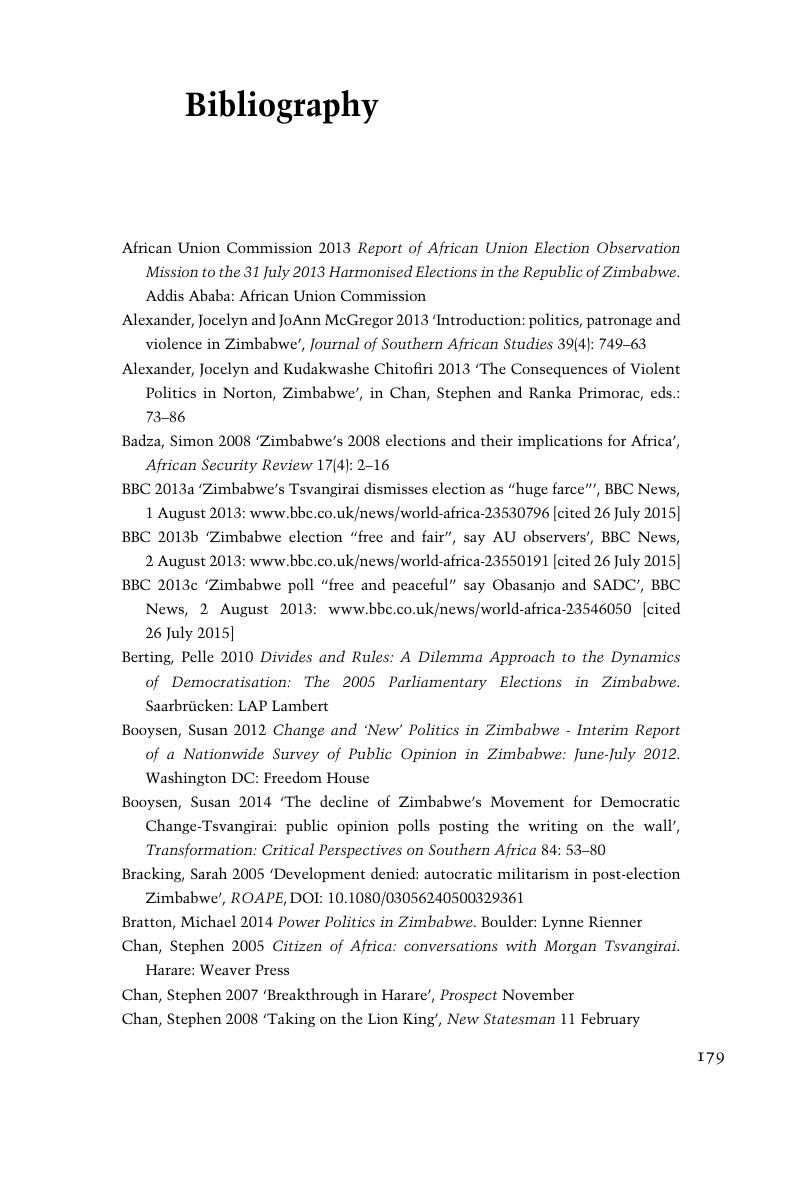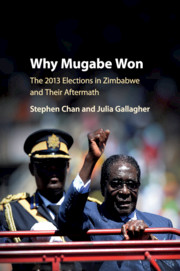Book contents
- Why Mugabe Won
- Why Mugabe Won
- Copyright page
- Contents
- Preface
- Acronyms
- 1 Introduction
- 2 Building towards the 2013 Elections
- 3 The Elections of 2013
- 4 ‘We Are Tired of Supporting a Loser’
- 5 ‘ZANU Managed to Mend Relationships’
- 6 Conflicting Reports and Assessments I
- 7 Conflicting Reports and Assessments II
- 8 One Year after the Elections
- 9 Succession Battles in the New Zimbabwe
- Postscript
- Bibliography
- Index
- References
Bibliography
Published online by Cambridge University Press: 22 June 2017
- Why Mugabe Won
- Why Mugabe Won
- Copyright page
- Contents
- Preface
- Acronyms
- 1 Introduction
- 2 Building towards the 2013 Elections
- 3 The Elections of 2013
- 4 ‘We Are Tired of Supporting a Loser’
- 5 ‘ZANU Managed to Mend Relationships’
- 6 Conflicting Reports and Assessments I
- 7 Conflicting Reports and Assessments II
- 8 One Year after the Elections
- 9 Succession Battles in the New Zimbabwe
- Postscript
- Bibliography
- Index
- References
Summary

- Type
- Chapter
- Information
- Why Mugabe WonThe 2013 Elections in Zimbabwe and their Aftermath, pp. 179 - 184Publisher: Cambridge University PressPrint publication year: 2017



